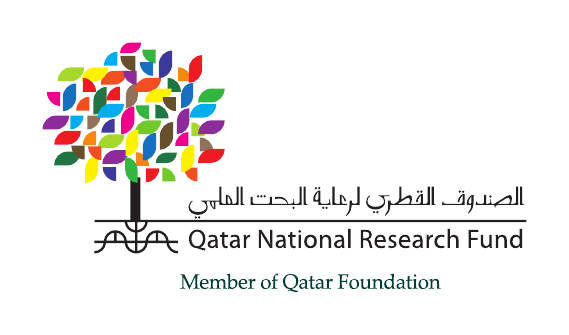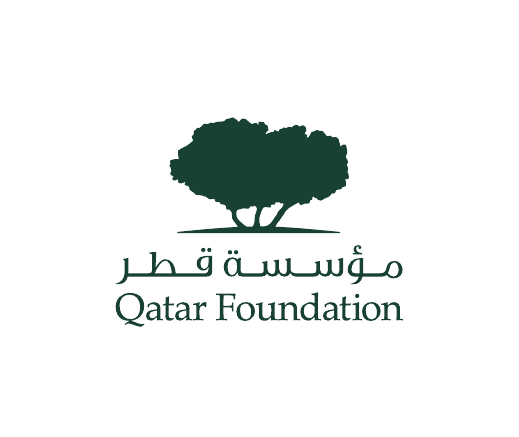Scope
2015 marks the 10th anniversary of the International Conference on Cognitive Radio Oriented Wireless Networks (Crowncom 2015). Crowncom 2015 will be hosted by Texas A&M University at Qatar 21-23 April, 2015. The event will be a special occasion to look back at the contribution of the Crowncom 2015 toward the advancements of cognitive radio technology since its inaugural conference in Mykonos Island, Greece, in 2006 — as well as to look forward to the decades ahead, the ways that cognitive radio technology would like to evolve, and the ways its emerging applications and services can ensure everyone is connected everywhere.
Crowncom 2015 will feature a comprehensive technical program including seven technical tracks and a number of tutorial and special sessions. Crowncom 2015 will also include Demo and Exhibition program, panels of regional and international experts, and keynote speakers. The conference will bring together academic and industry researchers to identify and discuss the recent development, highlight the challenging gaps and forecast the future trends of cognitive radio technology toward their integration with the fifth-generation (5G) of networks.
Crowncom 2015 invites you to submit your technical regular research and position papers, tutorial, special session and panel proposals on the following topics of interest, but not limited to:
Track 1 – Dynamic Spectrum Access/Management
- Dynamic spectrum allocation mechanisms and algorithms
- Cloud-based dynamic spectrum sharing/access management
- Cognitive radio integration in heterogeneous networks and small cells (2-tier/3-tier networking)
- Information-theoretic perspectives on optimal resource allocation for multiuser cognitive networks
- Cooperative communication, relaying systems and network coding
- Multiple-antenna transmission, reception and beam-forming
- Game theory applications in dynamic spectrum access
- Interference management and coordination
- Spectrum resource allocation with reduced, delayed or noisy channel state information
- Quality of service and experience, and fairness constraints on TVWS usage
- Multidimensional dynamic spectrum access/sharing
Track 2 – Networking Protocols for Cognitive Radio
- Cooperative networking / transmission
- Cognitive relays models and protocols
- Self organized networks
- Load balancing and network optimization
- Cooperative radio resource management
- Cross-layer control for cognitive networking
- Energy-efficient protocols for CR
- Cognitive radio protocols and algorithms
- Cognitive radio Under energy harvesting scenarios
Track 3 – Modeling and Theory
- Cognitive radio and network architectures
- Collaborative radio networks
- Information theory and performance limits of dynamic spectrum access
- Agile spectrum and dynamic spectrum sharing techniques
- Cognitive spectrum sharing, coexistence and interoperability
- Cross-layer algorithms based on spectrum sensing techniques
- Cognitive radio sensing in the large and feature detection
- Connectivity, capacity, and scalability of heterogeneous systems via cognitive networking
- Auction and pricing models for dynamic spectrum sharing
- Radio environment modelling
- Spectrum database (or geolocation database)
- Characterization of cognitive wireless networks
- Spectrum sensing
- Spectrum aggregation
- Spectrum mobility
- MIMO/OFDM-based cognitive radio
- Co-existence of primary and secondary networks
- Interference management
- Game theory for cognitive radio networks
- Energy-efficient spectrum sensing
- Cognitive in highly time-variant networks
- Radio environment modelling
- Algorithms for TV whitespace usage
- Cognitive channel/interference modelling
Track 4 – Hardware Architecture and Implementat
- Architecture and algorithm co-optimization
- Virtualized cognitive network architectures
- Energy-efficient design, both mobile and infrastructure
- Error-tolerant and reliable designs
- Reconfigurable systems including software defined and cognitive radios
- Reconfigurable antennas and RF circuits
- Cyber physical systems
- Hardware and software implementation issues
- Physical layer algorithms for cognitive radio
- Medium access control for cognitive networks
- Hardware architectures for certification and security
- Prototypes and testbeds
Track 5 – Next Generation of Cognitive Networks
- Unlicensed LTE and Wi-Fi deployments
- Application-driven cognitive radio resource management
- Energy-efficient green cognitive radio networks
- Cognitive radio with massive MIMO for 5G communications
- Radio environment map/Geo-location database for 5G cellular systems
- Spectrum sensing with focus on 5G cellular systems
- Cognitive radio resource management
- D2D and small-cell integration in cognitive networks
- Self-organised cognitive networks
- Context aware cognitive networks
- Measurements and statistical modeling of spectrum usage
- Carrier aggregation in licensed and unlicensed bands
- Ranging and localisation in cognitive networks
- Interoperability of cognitive heterogenous networks
- Security and stability of agile cognitive networks
Track 6 – Standards and Business Models
- National and international radio regulations
- Multioperator spectra management
- Standardization (IETF, ITU, 3GPP, IEEE, ETSI, etc)
- Business models, use cases, and applications
- Future concepts of spectrum usage
- Simulation, prototypes, and trials
- White space radio systems and coexistence methods
Track 7 – Emerging Applications for Cognitive Networks
- Machine type communications (MTC) or M2M over TVWS
-
Cognitive radio-based solutions for D2D communications and small-cells
- Smart grid communications and control over TVWS or unlicensed LTE
- Backhauling/fronthauling for heterogeneous traffic over TVWS
- Cognitive radio for smart homes and cities
- Cognitive technologies in 5G public safety communications
- Cognition driven energy harvesting
-
Dynamic spectrum aggregation for future air interface implementation
-
Self-organizing approaches for dynamic spectrum management
-
5G based on cognitive radio
- Business models and case studies to support emerging applications and services of cognitive networks
Publications
Conference proceedings will be published with Springer, in the Lecture Notes of ICST. The proceedings are submitted for inclusion to the leading indexing services: DBLP, Google Scholar, Thomson Scientific ISI Proceedings, EI Elsevier Engineering Index, CrossRef, Scopus, as well as ICST's own EU Digital Library (EUDL).
Selected papers will be invited to publish in the EAI Endorsed Transactions on Cognitive Communications.
Paper submission
Information about paper submissions (including guidelines) can be found under Author Instructions.
Important dates
-
Paper submission deadline:
January 15, 2014, 10 a.m. CET, January 31, 2014, 10 a.m. CET (final extension) -
Acceptance notifications:
February 21, 2015February 28, 2015 - Camera-ready submissions: March 10, 2015
- Tutorial and panel proposal submission: February 1, 2015
- Special session proposal submission: January 10, 2015








.jpg)

































